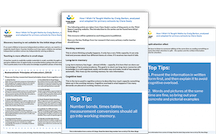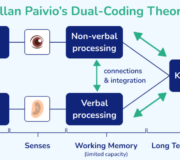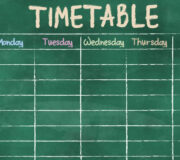How Retrieval Practice Helps Long-Term Maths Skills: How I Wish I’d Taught Maths (6)
Clare Sealy looks at the importance of retrieval practice in helping pupils to remember in the long term and explains how and why you should be incorporating retrieval practice activities in your KS1 and KS2 maths lessons.
This article is part of a series published to help primary school teachers and leaders implement some of the insights and teaching techniques derived from Craig Barton’s bestselling book How I Wish I’d Taught Maths. Links to the other 5 articles appear at the end.
In the introduction to this series, I outlined how Craig Barton in his book How I wish I’d taught maths described how he had changed his teaching as the result of reading research around cognitive load theory in the classroom.
In the latter part of his book, the focus turns to teaching strategies that help pupils remember what they already know, and how they can use their memory of previous learning to free up cognitive capacity for new learning.
What is retrieval practice?
Retrieval practice is the act of recalling a piece of information without having anything to help prompt you. It was original named ‘the testing effect’, after research focused on the finding that tests and short quizzes improved learning performance.
The term ‘retrieval practice‘ became more commonly used after it was demonstrated that any follow-up learning activity that required pupils to recall prior knowledge produced a similar effect.
A good example of this would be mentioning a football team and having someone be able to reel off their starting 11.
Obviously this example does not have much practical use in primary maths, but there is room for retrieval practice to become a big part of classroom learning, and meshes well with other ways of improving the learning process e.g. questioning in the classroom techniques, and metacognition in the classroom.
Why retrieval practice is important for primary classrooms
At the end of a sequence of lessons on a particular topic, teachers may feel reasonably confident that most of the class have learnt how to do whatever it was they have been learning – the grid method, for example.
Children may perform reasonably well in an end of unit formative assessment, or answer correctly to some casual quizzing at the end of a lesson.
However, revisit the topic a few weeks later and not only can children not remember how to do the grid method, several deny all knowledge of having even heard of it before, regardless of how well you’ve managed differentiation in the classroom!
This bemusing situation can leave teachers feeling rather dispirited and wondering where they have gone wrong. Don’t worry if this sounds like you though as you are not alone.
Results from the research: Forgetfulness is a worldwide problem
You will be perhaps reassured to discover that this phenomenon of mass amnesia is almost universal, and retrieval failure affects even the best among us.
It is a relief therefore to find out that cognitive science has thoroughly researched this area and has some sound strategies for overcoming it.
Performance and learning are two key elements in this area of research, and Soderstrom and Bjork (2015) explain the difference between the two:

Frustratingly, current performance is a terrible guide to knowing whether or not learning has actually happened.
Teachers and leaders are at risk at being fooled by current performance and thinking that change in the long-term memory (a.k.a learning) has taken place.
In lessons, teachers provide all sorts of clues and prompts that help children give the right answers.
This is fine as a first step, but unless teachers also have proven, quality first teaching strategies that enable learners to move beyond performance, little might actually be retained longer-term.
Fortunately, there is lots of research from cognitive science that provides strategies teachers can use to ensure long-term learning actually happens.
Crib Sheet for How I Wish I'd Taught Primary Maths
Download the key findings from research; share with your staff, your SLT, and at your next job interview!
Download Free Now!Benefits of retrieval practice in the classroom
Strange as it may seem, there is very robust evidence from cognitive science that when we try to remember something, that specific memory gets stronger.
Conversely, if we don’t have opportunities where we have to try to remember something, that memory will become weaker.
Retrieval practice is a strategy teachers can use to give pupils opportunities to have to try and remember things they have learnt previously; things they have begun to forget.
It is quite simply giving children a task (or retrieval activity) where they have to try and retrieve an answer from their long-term memory. Each time pupils try and do this, that memory will become a bit stronger and a bit easier to find next time.
As Bjork (1975) puts it:

What is important for teachers to understand is that for the memory strengthening to happen, pupils must try to remember without any priming or reteaching from us.
For retrieval practice to work, there has to be an element of struggle; it has to be at the very least, a bit hard to remember. There is no point in doing retrieval practice in the same lesson in which you have just taught something.
That’s too easy; it’s the struggle that strengthens the memory. Retrieval practice works best when memories have been forgotten!
Read more:
Remembering maths in the long-term: Translating retrieval practice to a primary school context
If KS2 children are to remember what we teach them long-term, we will need to go back to material throughout the year and revisit it. But re-teaching it will not be effective.
Instead, we need to give children low stakes quizzes where they have to try to answer questions from topics learnt a few weeks ago that the teacher has not revised with them first.
This can feel mean.
Usually, as teachers we would go over something we had not done for a while before retesting it. This is why the way in which you do retrieval practice is really important and why it should be low stakes.
This is not a test.
It is not about assessing what children can and can’t do.
It is about strengthening memory. Retrieval practice is a learning technique, not an assessment technique. This needs to be explained to children.
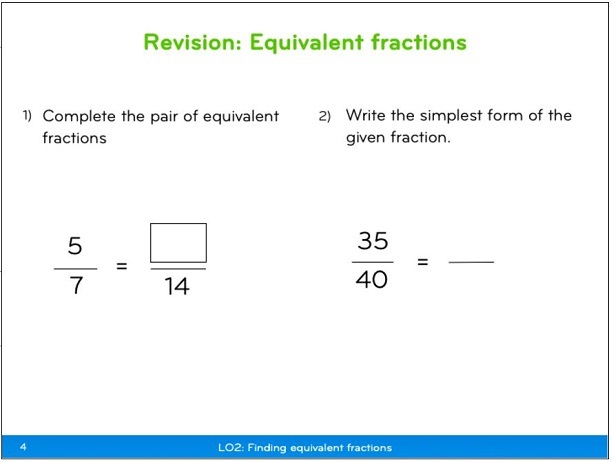
Note: This makes this an excellent activity to do early on in the year, especially as children may still be suffering from the summer slide.
Bringing retrieval practice examples into the classroom
One unique way to to help with retrieval practice is to tell your pupils they are going to play hide and seek with the knowledge in their brains. Their knowledge might be quite good at hiding but they are going to try to find it.
Quizzes are another good idea, but they don’t always have to be on paper. Writing answers on whiteboards is fine too.
One important thing to note though is that after the quiz, whatever you do, do not get children to swap with a partner to mark them.
If you do this, first of all it heightens the anxiety around the quiz (children will perceive it as a higher stakes test, not a quiz), and secondly when you go over the questions, they might be concentrating more on checking that their partner is marking their ‘test’ correctly than they are concentrating on you explaining the answers.
It doesn’t matter if children change their wrong answers when you explain because this is not an assessment. In fact, that’s useful. Nor should you ask them to calculate how many out of ten they got correct.
Adding elements of assessment into the process is simply not beneficial at this point in time.
Don’t over complicate things – save assessments for another time
If you want to glean assessment information from this, do this in a subsequent lesson when you repeat the very same quiz (possibly tweaking the actual numbers but being sure to keep the necessary maths exactly the same), only this time, make it clear that it is not a quiz, it’s a test.
If you use maths homework, as a way to give children further practice between the quiz and the second attempt, make it clear that the second time around it is a test.
Build in time to do retrieval practice at gradually increasing intervals; three days, three weeks and three months after having learnt it. And do the same for material learned one year, two years and three years ago.
By struggling to remember something half-forgotten, that memory will be strengthened. Once they have struggled, by all means reteach it, if necessary.
Read more:
Automaticity is key to improving working memory in the classroom
Making sure that pupils remember what we have taught them is important because maths is a hierarchical subject that needs firmly remembered foundations. However, it is also important for another reason.
Pupils’ finite, precious working memory capacity needs to be reserved for the new stuff we are teaching. It shouldn’t be cluttered up processing things that should be remembered so well that recall of them is automatic.

One of the biggest things that holds some children back in maths is an over-reliance on counting because foundation number facts have not been learnt to automaticity.
Because some children do not know basic number bonds automatically, then even at secondary school they are reduced to counting rather than calculating.
The cognitive load this places on the working memory means that there is less cognitive capacity available to think about the maths, let alone solve problems.
Whatever else primary schools do, they must ensure that children know all their number bonds within 20 and their times tables. If we do not give children the time they need to learn these to automaticity, we are potentially setting them up for a lifetime of finding maths hard.
However, there is often an aversion within the profession to what is seen as meaningless ‘rote’ learning. If all we did was drill children in recall without ever applying what was learnt, then that would be pretty meaningless.
Don’t let your pupils become prisoners of counting
Alongside ensuring that children really understand what addition and multiplication mean, alongside their relationships to subtraction and division, we also need to devote curriculum time to ensuring that children are not prisoners of counting.
Even in the early years, we need to help children become automatic with simple number bonds within 5 and to 10.
By doing so, we do them such a favour. Instead of fumbling on their fingers, children have mental capacity freed up to think. Once liberated from the shackles of counting everything, they can discover patterns and relationships within numbers; they can reason mathematically.
It is having to laboriously count everything that is meaningless, not knowing things automatically.
Sometimes, knowing stuff by heart and reasoning mathematically are seen as opposites, but they are not mutually exclusive, they are mutually codependent.
However, ‘drill’ has got such a bad press over the years that even where children are given time to practise basic skills, this might not be enough time for all children to become really fluent in their recall.
Teachers worry that they will not have time to cover the curriculum if they spend time practising basic number facts until they are automatic. However, this is a false economy. Without automatic recall of number facts, less of the maths curriculum teachers do cover will be understood anyway, and will end up taking longer to teach. This is why retrieval practice is so important.
There’s more to automaticity than recalling number bonds and times tables
As important as secure and automatic recall of number bonds and times tables are, they are not the only things that we should make sure are remembered to automaticity.
Procedures such as vertical addition and subtraction, long multiplication and division also need to be practised so thoroughly that the steps in each procedure are automatic and do not need to be actively remembered.
Of course it is really important that children actually understand how and why these algorithms work. But one casualty in the important drive for ensuring conceptual understanding has been making sure procedural fluency gets enough focus.
Again, these are not either/ors. Children need both. So if you have been told in the past that once children can do five of a calculation correctly they should move on to something else otherwise they are not making progress, please ignore that advice.
Progress can entail learning something more securely, it does not always involve learning something new. Children need to practice not until they don’t get it wrong, but until they can’t get it wrong, so embedded is the procedure in the long-term memory.
Practice does not make perfect, practice makes permanent
We need to ensure that our children leave us ready for the challenges of secondary school maths with really secure recall of number bonds, times tables, algorithms for the 4 operations, and knowing prime numbers and square numbers off by heart.
Children should be able to tell the time, know the days of the week and months of the year and how to convert measures effortlessly.
Secondary schools have the right to expect the overwhelming majority of children to be able to do those things easily. Of course we also want them to be able to reason mathematically, but automatic recall of facts and procedures is not the enemy of comprehension; rather it is its partner.
Entwined together, procedural fluency and mathematical automaticity give birth to mathematical reasoning! Unless we ensure children have both, then Craig and his secondary colleagues will be left muttering about us primary teachers, ‘How I wish they’d taught maths!’
Sources of Inspiration
- Soderstrom, N. C. and Bjork , R. A. (2015) ‘Learning versus performance: an integrative review’, Perspectives on Psychological Science 10 (2) pp. 176-199
- Bjork, E. L. and Bjork, R. A. (2014), ‘Making things hard on yourself. But in a good way: creating desirable difficulties to enhance learning’ in Gernbachet, M. A. and Pomerantz, J. (eds) Psychology and the real world: essays illustrating fundamental contributions to society. 2nd edition. New York, NY: pp.59-68
August 2018 Update – Retrieval practice activities for the classroom
If you have been blown away by what you’ve read in Clare’s blog and are looking for some simple ways to bring retrieval practice into your classroom, take a look at these four examples:
Retrieval Practice Activity 1 – Sharing in Pairs
This simple task can be used at any time throughout the day to encourage students to recall information and cement knowledge, and the joy is that it can be used across subjects, not just in maths!
All you have to do is ask a simple, open-ended question to the class such as:
“Name one thing you learned yesterday in our lesson about fractions.”
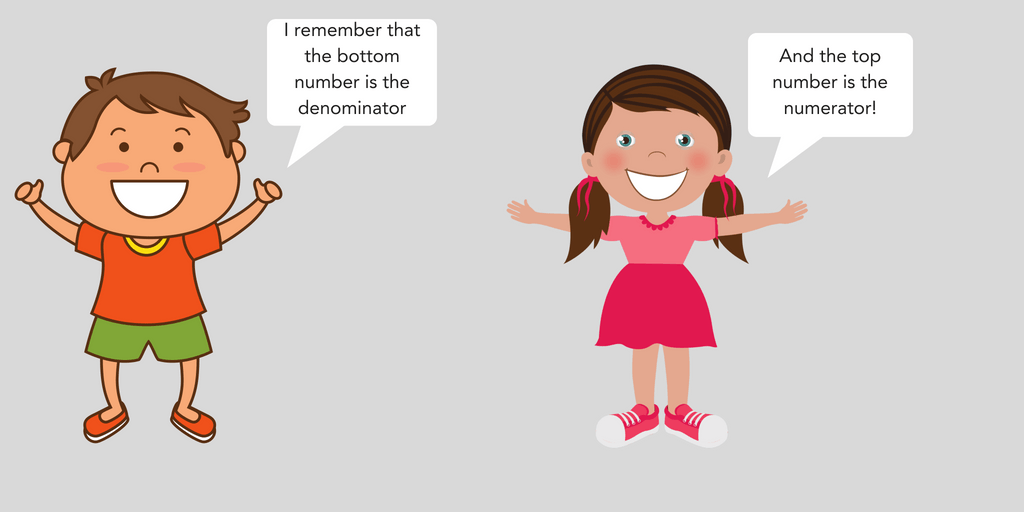
Give the pupils a chance to think on their own first (as a partner may “help” them to recall information), and then ask them to pair up and share their answers with their partner.
Retrieval Practice Activity 2 – Quick Quizzes
Nothing too complicated is needed here! Simple quizzes as a starter activity can help to cement subject knowledge. 5 questions on a worksheet will work perfectly fine, but if you have access to laptops then Google forms are a way to bring quizzes into the 21st century.
There should ideally be no points or grades assigned to these quizzes as they are purely being used as a learning strategy.
Retrieval Practice Activity 3 – It’s Brain Dump Time!
Another simple, yet effective task, brain dumps are perfectly suited to retrieval practice.
Ask your pupils to write down everything they remember about a maths subject on a piece of paper in five minutes.
After this, you can get them to pair up and compare what they have written down or create a whole class brain dump. This gives pupils a great chance to see what they may have missed from their own sheet and make corrections and additions as needed!
Retrieval Practice Activity 4 – Flash Cards
Flash cards have been around since the dawn of teaching, but if used correctly they can be a great tool to help with retrieval practice in the classroom.
It is important that once a pupil has mastered a card, it remains in the deck for a while. Pupils often drop cards out too soon after they have mastered them, and ideally a fact should be retrieved three times before it is discarded.
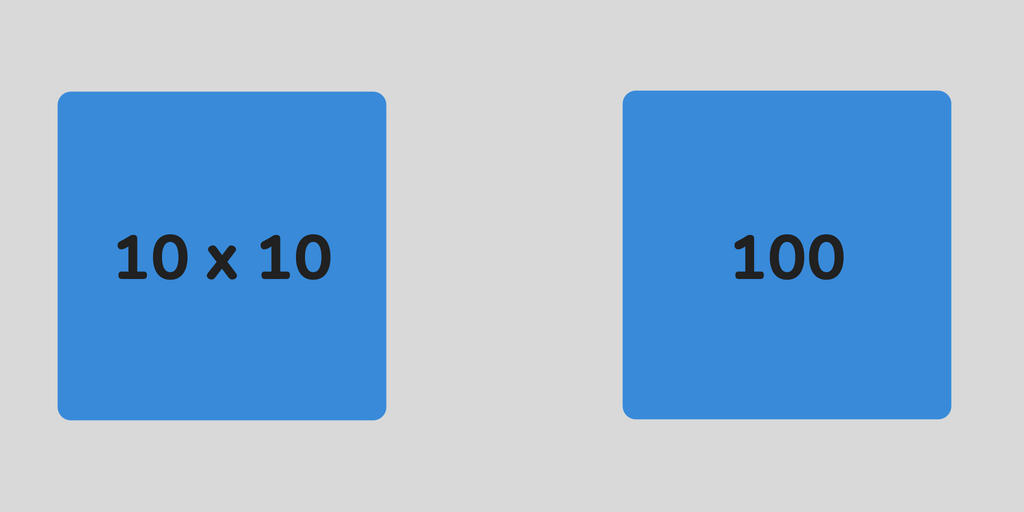
You will also need to ensure that pupils are actually retrieving the information on the cards. On occasion, when pupils see a familiar prompt on a flashcard they will tell themselves they know the answer, then flip the card over and see the answer before actually saying it out loud. This is something that can be missed when using flash cards but definitely shouldn’t!
One other tip is to make sure you shuffle the deck. Predictability can cause laziness in the long-term memory!
This is the sixth blog in a series of 6 adapting the book How I Wish I’d Taught Maths for a primary audience. If you wish to read the other blogs in the series, check them out below:
DO YOU HAVE STUDENTS WHO NEED MORE SUPPORT IN MATHS?
Every week Third Space Learning’s specialist school tutors support thousands of students across hundreds of schools with weekly online 1 to 1 maths lessons designed to plug gaps and boost progress.
Since 2013 these personalised one to 1 lessons have helped over 150,000 primary and secondary students become more confident, able mathematicians.
Learn how tutors build rapport or request a personalised quote for your school to speak to us about your school’s needs and how we can help.

